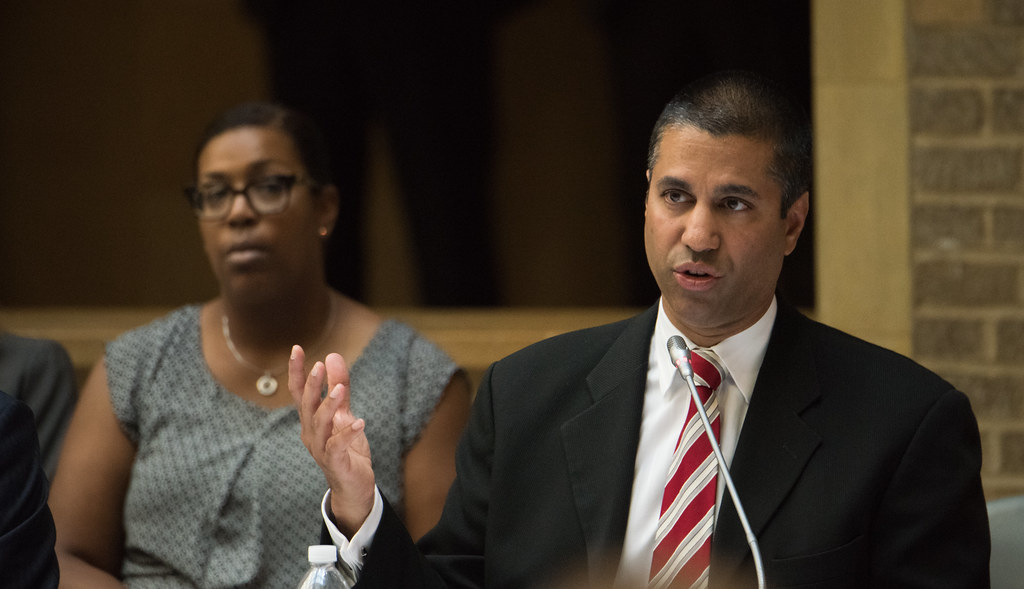F-Word: #IraqToo
It’s been just about a year since working women of all kinds gathered in DC to oppose a woman-abusing, worker-exploiting, Trump-supported nominee to head the US Department of Labor. As I heard journalist Sarah Jaffe put it recently, that successful mobilization against chain-restaurant titan and wife-abuser Andrew Puzder, should in many ways be seen as the start of this stage of the #MeToo movement.
Since then, who can keep track of all the abusers and all the abuse? Who can keep track and who can explain so much violence, so much forcing our will on one another, and so much terrorizing against people we claim to recognize as sisters, friends, family members, employees. How do we let it happen, and why is it so rare that we make it stop? And what makes us accept the terribly bad bargain of silence, the going-on-as-normal?
And then I try to remember that we don’t always go along. Sometimes we speak up, as women did against proposed Labor Secretary Puzder in 2017, and as we did, as a world, fifteen years ago, on February 15th 2003.

I remember standing in a huge crowd near the United Nations, part of a worldwide uprising of tens of millions of people in sixty countries, all saying no to waging war on Iraq.
On that cold day, a very bundled-up Nobel Peace Prize winner Archbishop Desmond Tutu said, “We are members of one family, God’s Family, the human family. How can we say we want to drop bombs on our sisters and brothers and on our children?”
We said we couldn’t, we didn’t want to, and then we let it happen, anyway, and that was 15 years ago this month.
Today, according to the Costs of War Project US troops and drones and bombs are forcing themselves on people in Afghanistan, Syria, Iraq, Yemen, Somalia. US special forces are in a total of 76 countries and the terrifying US-led "war on terror” has involved 39% of the countries on the planet.
I believe the sick calculus by which we permit terrorism and abuse of our power in Iraq is the same sick calculus by which some of us believe we can get away with forcing our will on others nearer to us.
Which leaves me here in another cold February, trying to imagine what my next minute would be like if I actually lived on a planet of people who believed they were related to one another. What would that look like, feel like, breathe like? And what would we be doing with all the time we wouldn’t have to be spending wondering and imagining and fending-off and being, or not-being silent?
F-Word: Dr. King and the Ram
Super Bowl 2018 drew the smallest audience of any national championship game since 2009 but that didn’t quell the ruckus stoked by one of the mid-game ads. Listen carefully and there it was: Dr. Martin Luther King, pitching for trucks by RAM.
What next, muttered the critics: Rosa Parks shilling for Uber? James Baldwin hawking the Firestone next time?
What really got my goat - no pun intended - was fact that sermon in question was all about the dangers of hucksterism, extreme materialism and greed, and those - ahem- huckster leaders who use their power to drive people into desperation, and distract them from what’s really going on, in no small part by selling people things they don’t need and can’t afford.
Delivered fifty years ago to the day, Dr. King talked about people “taken by advertisers”.
Today it’s even more true than it was then. The money media’s obsessing over the stock market this week, but the real market’s what really demands attention.
There, household debt stands at a record high: just under $13 TRILLION. And the one area of consumer debt that really stands out are auto loans. The New York Fed estimates that 23 million consumers hold subprime auto loans, which are based on super low credit scores.
Like subprime mortgages, subprime auto loans aren’t made by traditional banks or credit unions, but by auto finance companies such as car dealers, reports the Fed, which is to say, hucksters. And one-fifth of those, or 20 percent are in default today.

Read that King speech in full - (Drum Major it's called) look it up. Don’t be taken in by advertisers, don’t compete yourself into greed and hate, and bankruptcy, he says. In other words, probably, don’t buy that RAM. But his bigger point is about extreme materialism, just one of the triple evils King was calling out in his final year. There’s something spiritually wrong, he said, with an economy that prizes things over people, and spends hand over fist on wars and ads when families can’t afford a car.
Whatever’s happening on Wall Street, Main Street’s in trouble. The same sort of trouble we saw just before the 2008 financial crash. In fact, family debt’s is up — $280 billion above its peak in the third quarter of that dangerous year. I suspect that that, not the Super Bowl fracas, is what we need to be paying attention to today.
Excerpt: Preserving the Family Album: Deborah Willis and Hank Willis Thomas
https://www.youtube.com/watch?v=fD-uA60AmCk

Deborah Willis is a photographer, a prolific one. She's published upwards of 20 books of her work and is viewed as a kind of icon in her field covering everything from the history of black photography to the Obamas. At a time when photography and the arts in general were largely dominated by white males, Willis emerged as something of a phenom. And if you already find out that you know her work you'll understand why in a moment. She's a recipient of the MacArthur and Guggenheim fellowships and chair of the Department of Photography and Imaging at the Tisch School of the Arts at NYU. And the talent in that family doesn't end with her.
Her son Hank Willis Thomas is a renowned artist in his own right, working in photography, video and installations with a similar focus on identity history and popular culture. His work's been exhibited around the world too, including the Guggenheim Bilbao, the National Gallery of Art in DC, and the Museum of Modern Art right here in New York City.
Deborah: I like to read the family album. I loved to look at the way that the women were dressed. I love the inscriptions. So I think the family album is really a central way for us to know about our memories and to tell stories. Later on I realized that in the larger society, no one actually looked at black families as a central way of knowing, a sense of being, or a sense of existence.
Hank: In 1968, during the Memphis Sanitation Workers March, a photographer, African-American photographer named Ernest Wither, photographed dozens of protesters holding signs that read, "I am a man." And I always reflected on that image with curiosity because there was a statement of collectivity when people were fighting segregation. After integration, it seemed to be a boastful statement and saying, "I'm the man." And I felt that there was progress in being able to be an individual, but also things that are lost when we don't see the benefits of collective struggle.
Read more
Who Needs DeNeuve When We Have Judge Aquilina?
Dang, Patriarchy’s pathetic sometime. And no, I'm not talking about the shriveled specter of former Spartacus star, Kirk Douglas the Golden Globe ceremony. (Although that did explain why so many billionaires are spending mad money on anti-aging research.) No, I'm talking about the age old routine of laying on a catfight. The bread and circus distraction white male capital uses to fend off feminist threats.
It’s routine stuff. In the months since the Harvey Weinstein allegations broke, a steady drip of anti-accuser women have come forth to say not me too but me-not. Women like Catherine DeNeuve, Donna Karan, Brigitte Bardot. I don’t happen to give a fig what Brigitte Bardot thinks about anything - she’s pro Le Pen, probably pro Nazi too. But it’s long past time we got wise to this stuff. Votes for women? Voila, a National Association of American women Opposed Women’s Suffrage. Anita Hill? An itty bitty group was made up by the Right to come out in favor of Clarence Thomas.

Making counter-power out of madness
By Laura Flanders for TNI's State of Power 2018

For those contemplating counter-power, the ten-year anniversary of the global financial crisis, or Great Recession, is perhaps even more immediately significant than the uprisings of ’68.
In the US, the decade since 2008 has not seen the emergence of the sort of counter-power represented by Syriza or Podemos. Resistance movements haven’t morphed into political parties and won national power, not yet. But we did see millions of US citizens vote for self-described socialist, Bernie Sanders, and from his campaign has emerged a campaigning organization that talks about socialism, called Our Revolution.
All this is at least in part because we have seen a decade of mass consciousness-raising about capitalism, courtesy of the 2008 crisis and sustained by phenomena like Occupy Wall Street, Strike Debt (and before that the International Monetary Fund (IMF) and World Bank protests, which centred on a critique of global capitalism). Not just economic problems, but economic systems, long a taboo in the US, are up for debate. It’s hard to overstate how important this is, in a country that only 50 years ago was raised on red-baiting.
In 2016, 51% of US citizens between the ages of 18 and 29 told Harvard University researchers that they opposed capitalism. Only 42% expressed support. In October 2017, pollsters found that 44% of US millennials would pick a socialist rather than a capitalist country in which to live.
In November 2017, tickets to ‘Capitalism: A Debate’ sold out in a day and speakers from socialist Jacobin and libertarian Reason magazines had to move to a larger venue. The event sold out once again, this time in eight hours.
Jane Fonda and Lily Tomlin on the road with #OneFairWage Campaign
Laura Flanders: This time last year, Eve and I were happy to have had a role in introducing Jane Fonda to Saru Jayaraman. Long story but suffice to say not long after that, Fonda began working with the Restaurant Opportunities Center, or ROC, in their campaign to end the low tipped wages that millions of restaurant workers, disproportionately women, receive. Last summer Jane and Lily Tomlin, her co-star in the Netflix hit Grace and Frankie, went to Detroit to canvass door to door for a ballot initiative that seeks not only to win a single fair minimum wage, but to help build a broad, progressive agenda in Michigan statewide.
Jane Fonda: Nationally 70% of tipped restaurant workers are women. In Michigan, it's 80%. A lot of restaurants, especially the wealthiest big chains, don't pay them a living wage. There's really no reason why the public should subsidize people who work for large chains.
Saru Jayaraman: What is it called when you don't get a wage from your employer?
Audience: Slave labor.
Saru Jayaraman: And actually this is an actual legacy of slavery.
Read more
From the American South to Global South: Emery Wright and Fred Bauma
This week The Laura Flanders Show comes from Whitakers, North Carolina, and the annual gathering of The Southern Movement Assemblies, a living experiment in popular Democracy and local self-governance.
Plantation politics, monopoly capitalism, incarceration instead of peace, a lot of the worst of the US experience has its roots in the South, but so do much of the best. From slave revolts to abolition, to organized labor, and civil rights. If the country goes as the South goes, what grassroots progressives to here matters. That's why we're here this week. For today's special, we partnered with Project South, an anchor organization of the Southern Movement Assemblies. Laura was joined by co-host LaDie Mansfield.
Laura Flanders:This week, from the US South, the birth place of so much of our economics and governance system in the United States. Could the alternatives to those systems be emerging? It's just possible. This week we come to you from Whitakers, North Carolina, in a spacial co-production with Project South, an anchor organization of the Southern Movement Assemblies.
Emery Wright:SMA really developed out of our experiencing what wasn't available in the aftermath of Hurricane Katrina. In the Gulf Coast Disaster, we saw that there was no mechanism for social movements to come together, make decisions, and then implement those decisions at the scale that was necessary to respond to that level of disaster. And, so, we kind of made commitments to ourselves as relatively young organizers back in 2005, that part of our generational struggle was to figure out this question of movement governance, and how can social movements come together, make decisions, and implement those decisions on a scale commensurate to the level of disaster, crisis that we're facing.
Part of the process that needs to be front and center within the Southern Movement Assembly is to connect with our brothers and sisters in the global South because there's so much shared cultural foundations, but, also, shared struggles. And so we can use that to build, not only grassroots power in the US South, but grassroots social movement power globally.
Read moreF-Word: Wanted, This Christmas, A Media-Monopoly Bust Up
Holiday shopping on your mind? Gift subscriptions to newspapers and magazines were big last year. Subscriptions to the New York Times and the Washington Post spiked soon after the election, as the penny seemed to drop that without an informed electorate we have a pretty dodgy democracy.

F-Word: Election Night - Dems Divided Down Progressive Fault Lines?
Watch the F-Word: https://www.youtube.com/watch?v=mIF5HBuZ49Y
Excited by the last elections? Relieved to see Democrats clean up? A year after the election of Donald Trump and the Republican sweep, progressives won from Maine to Minnesota. Election night was a cheery occasion for people on the progressive flank of the ever-fractious Democratic Party. Cheery - except for one terrifying moment.
Just before Virginia’s governor-elect Ralph Northam took the stage, a man took the microphone who is uniquely qualified to seize from the jaws of victory yet more defeat for Democrats. Terry McAuliffe: the former Democratic Governor and party consigliere, has spent his career shoving the Democratic Party to the Right, creating exactly the party profile that’s turned off at least a generation of voters. At the Democratic Leadership Council, he never saw a lobbyist whose dollars were too blood soaked to accept: Chevron Enron, Philip Morris, Monsanto, McAuliffe found them all a place. When Donna Brazile’s wrote that the Democratic National Committee was run as a slush fund for the most powerful politicians, she was hardly breaking news. The DNC’s run that way for decades, and McAuliffe’s been a central part of that.
Read more
